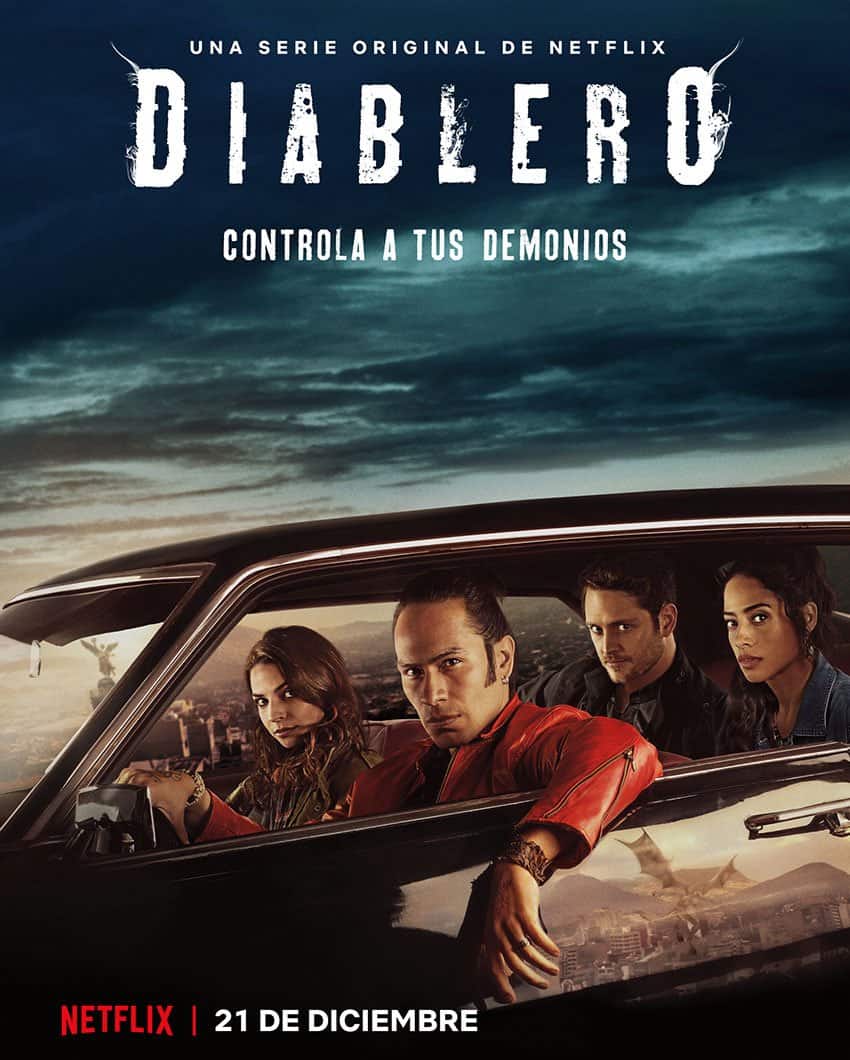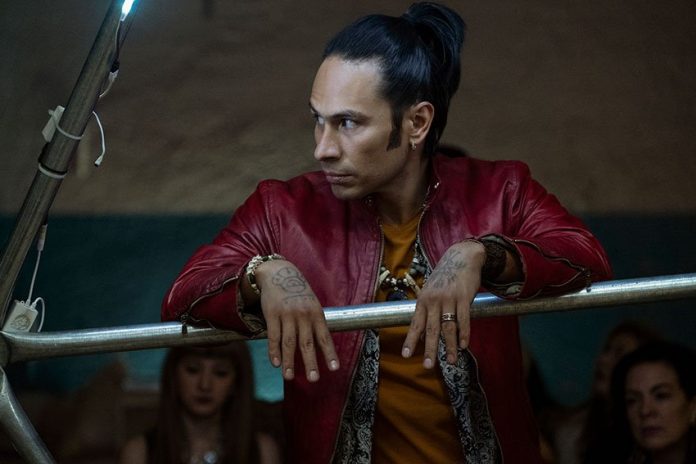This year has been an interesting and fruitful one for Mexican shows and movies on Netflix. Most notable is the release of Alfonso Cuarón’s latest masterpiece, Roma, that was produced for Netflix and released last Friday.
There have also been hit shows like Casa de las Flores and Narcos Mexico as well as the polemic reality drama, Made in Mexico, documenting the life of Mexico City’s elite.
Now comes the first global premiere of a Mexican series. Called Diablero, it is an interesting move for Netflix, moving away from the grittier series that speak of real life in Mexico or comedy shows that create comedic spoofs on traditional telenovelas.
Diablero is an adventurous science fiction series that calls on special effects to create a Mexico City which has been abandoned by the angels and in which demons exist. It is based on the book El Diablo Me Obliga (The Devil Made Me) by Mexican writer Francisco Gerardo Haghenbeck and was made into this series by Morena Films.
Mexico News Daily caught up with the protagonist, Horacio García Rojas, who plays Elvis Infante, el Diablero, or devil hunter, to find out more about the series. We met in a café in the south of Mexico City on a street lined with billboards of Garcia’s face advertising Friday’s launch.

Horacio is a laid-back, handsome actor originally from Veracruz who now lives in Mexico City with his family. Readers may have seen him in Narcos Mexico or as a Mexica in the 2017 film La Carga. When talking about Diablero, he is animated and passionate, excited for the show to air and for something new and different to hit our screens.
Could you tell me a little bit about what Diablero is all about?
Diablero is a science fiction series that combines fantasy, horror and adventure with a touch of black comedy. It is a series set in a world where angels no longer exist, they left, they abandoned humanity. The demons are hidden and the Diableros are in charge of trying to create balance. They are charged with capturing the demons and sending them back to their place of origin.
Everything starts when a priest [played by Christopher von Uckermann] realizes that in the past he was a father, something he was unaware of, and that his daughter disappeared, and the kidnapper of the daughter appears to be something supernatural. So he calls upon Elvis Infante [Garcia’s character] who is a demon hunter, and this is where the adventure starts.
And your character works alongside a woman too, is that right?
There are two women. One is my sister. Elvis and Keta [played by Fátima Molina] are brother and sister, two people who have grown up together and alone. Elvis is volatile, ethereal and rarely serious, while she is more grounded. They complement each other.
Then there comes another woman who is Elvis’ student Nancy [played by Giselle Kuri]. She is the only person that they know up to that point who can call on demons and remove them at will . . . and the only person who understands her is Elvis.
What for you is the most interesting or intriguing thing about the series?
It is the first series that reflects this universe. The universe of the mystical and magical. The relationship with death, color . . . and mystical things that happen in Mexico and we think that the public is going to really appreciate it.
Foreigners like this part of Mexico, the relationship that Mexico has with the mystical that no other country has, I think. Mexico has the fortune to have so many indigenous cultures and each one has their magic, and Diablero works with that.
So does the series talk about the indigenous cultures of Mexico?
It’s something intrinsic. For example, the calls that Elvis recites to draw out a demon are written in Latin and Náhuatl, understanding the two roots that form Mexican Spanish. So, in that way, it is present. Elvis’ sister is a Santería priest for example. She is an expert in Santería and herbology. She can make potions that help people remember or forget. Elvis and Keta don’t have a particular religion, but they are aware of all religions.
Our conversation veers off to the mystical and magical in Mexico. García talks of growing up in the Huasteca area of Veracruz and all of the supernatural stories that circulated in his town about duendes (goblins) and chaneques (sprite-like beings from Mexica folklore) and seeing things that can’t easily be explained. He is sure that Diablero is going to make the Mexican audience think about their own stories of the supernatural and unexplained. Moving back to the bricks and mortar of the streets, we talk about the depiction of Mexico’s capital in the show.
Are we going to see the streets of Mexico City in the series?
Yes, it is a series with a backdrop that reflects the richness of Mexico City, from streets filled with graffiti to beautiful historical buildings.
This is clearly new ground for a Mexican series. How do you feel about that?
I am really excited. I think it is necessary for us to identify and appreciate the country that we have that is so rich and so vast and at the same time the audience is going to be able to understand themselves further as Mexicans and maybe recognize the cultural richness that exists in Mexico City and in the country.
I am the first protagonist in a series on Netflix [Mexico] who is a mestizo who is more indigenous than European looking, and this also makes me really proud. I hope it will open the door to telling more stories where the cast is more diverse. Mexico is a country with lots of diversity and for many years the television only paid attention to the more white, European actors . . . relegating actors with darker skin to roles as servants or narcotraffickers or villains. In Diablero, there is a mixed cast and I think that is important. At the end of the day, the television has to represent who we are. I think Diablero will leave us with a pride in what it means to be Mexican.
Elvis is a hero, well maybe more of an antihero. He is someone who is prepared to give his life for an ideal. This is cool too, to see Mexican heroes and for us to identify again with that.
It is a peculiar series in the best meaning of the word. It’s really different and we are so excited about it.
Was there a good connection among the cast and crew?
Yes, there was a great chemistry. It was a shoot that really needed this positive chemistry because of the dark tone of the series and we were working really long hours and working a lot during the night, so it was so important to get on well, not just the cast but the crew too.
Diablero, which runs over eight episodes will take to Netflix screens worldwide beginning Friday, December 21. It promises to bring something new and exciting and important into the realm of Mexican series, celebrating the uniquely mystical nature of Mexico to captivate audiences worldwide.
Susannah Rigg is a freelance writer and Mexico specialist based in Mexico City. Her work has been published by BBC Travel, Condé Nast Traveler, CNN Travel and The Independent UK among others. Find out more about Susannah on her website.
